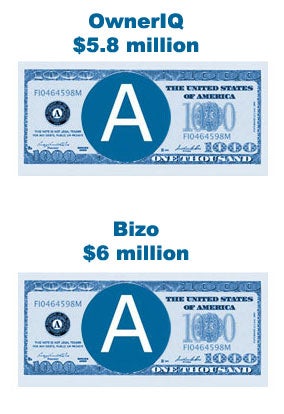 The funding hit parade has not abated as Boson-based, OwnerIQ, a targeting platform that uses ownership data points to effect client campaigns, and Bizo, an online B2B advertising company that uses its “bizographic” magic to target b2b audiences across inventory sources.
The funding hit parade has not abated as Boson-based, OwnerIQ, a targeting platform that uses ownership data points to effect client campaigns, and Bizo, an online B2B advertising company that uses its “bizographic” magic to target b2b audiences across inventory sources.
CEO Jay Habegger told AdExchanger.com that this this funding round wasn’t as hard as he imagined and included with participation from Atlas Venture, Common Angels, Egan Managed Capital, Kepha Partners, and the Massachusetts Technology Development Corporation. Total funding for all three rounds since 2006 comes to $13 million+ (Read Edgar filing – courtesy of Xconomy.). Habeggar added on the funding:
“Based on the general economic climate I expected a protracted and difficult fund raising process. I was pleasantly surprised. We had multiple interested parties for the OwnerIQ opportunity and this turned out to be the shortest financing cycle from start of campaign to close that I have ever led. On the basis of this experience I’d have to say there is plenty of interest in ad tech start-ups.
The new emerging World of online display advertising proprietary data, algorithms, inventory and advertisers coming together in real-time to maximize ROI – is clearly creating plenty of opportunity and this isn’t lost on the venture community.”
Russel Glass, CEO of Bizo, concurred that his company’s $6 million funding round (Initially reported in Paid Content last week. Today’s release is here.) lent itself to the current buzz in the ad tech marketplace:
“The climate for ad tech startups is actually pretty good right now if you have a differentiated offering. Lots of money chasing the top opportunities in the space. Acquisitions like Admob and Teracent will only help this climate.”
Glass said that in terms of next steps for Bizo beyond a sales and marketing infrastructure ramp, Bizo is “staffing up our product team for a number of new products we are releasing in Q1 and Q2. All we’ll be focused on are new and better ways to leverage our b2b data set and on increasing the value of the data we provide for customers.”
OwnerIQ’s Habegger said in regards to future milestones that beyond expanding the company’s advertising sales footprint, Owner IQ will “work very closely with retailers and manufacturers, both as sources of behavioral data and advertisers.” Habegger added that OwnerIQ will also continue to develop MOST, their real-time bidding platform.
Read more on Bizo funding from VentureBeat. For more on the OwnerIQ round, visit Mass High Tech.
By John Ebbert










